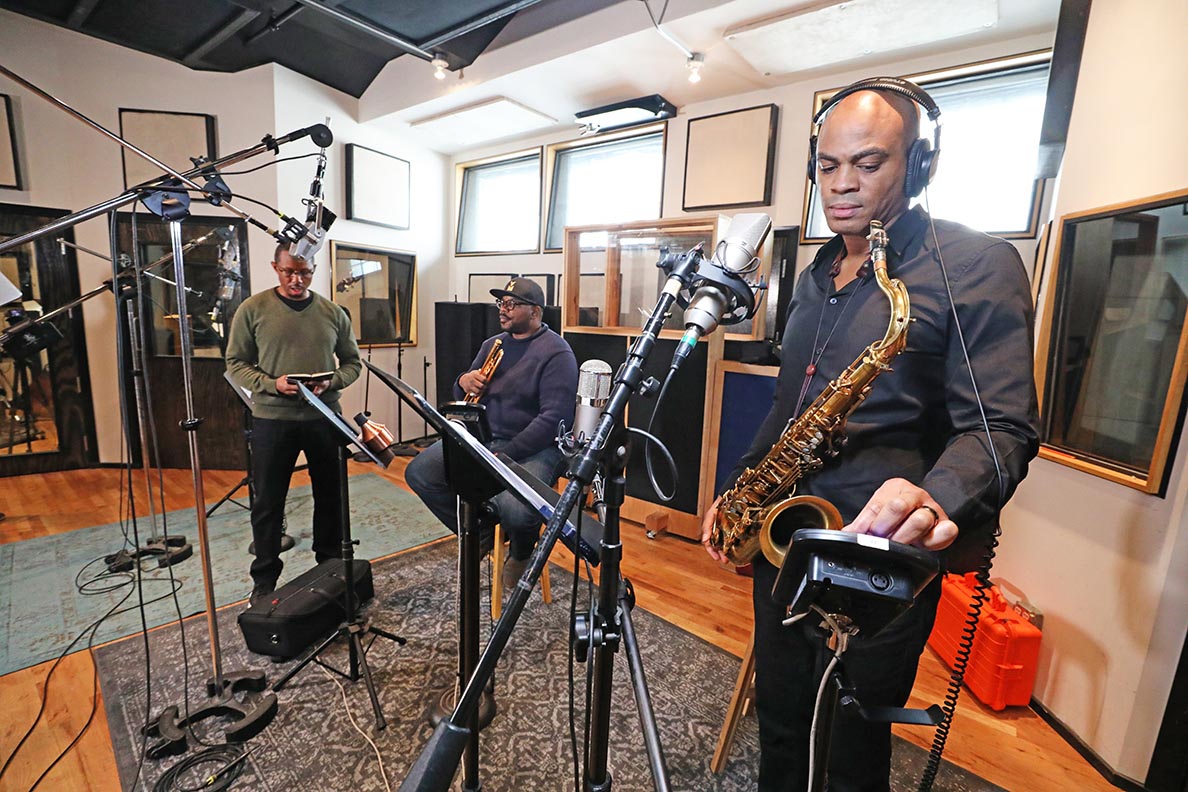Feature Friday Q&A with Wayne Escoffery Part III
Feature Friday Q&A With Wayne Escoffery Part III
Last, but certainly not least, we talk to Wayne Escoffery about how the jazz industry has changed since the 80s, along with his experiences recording My Ship!
JK: Do you feel like you have accomplished the musical dreams you had as a child?
WE: I think, like most people in many careers, after you make it to a certain point, you realize that, number one, it probably wasn’t exactly what you expected it to be and, number two, these vocations, these careers, they change. When I was coming up in the 80s and 90s, when I looked at what it meant to be a successful jazz musician—that was the day of The Young Lions. And at least what I thought was that they were doing very well for themselves, doing well financially, and had a lot of resources and support. So, you’re asking if I feel like I reached that success—sure iIve reached that success, that point. I’ve succeeded in many of the goals that I had set out for myself but I’m not sure that the outcome is quite what I thought it would be because the industry has changed so much.
JK: I mean you’re still getting to play your music and get to that level of artistry you desired, right?
WE: Of course, of course and that’s ultimately one of the most important things—and being able to play with high level musicians and I’m respected in my field. Those are ultimately some of the most important things that I’ve set out to do, so I’m very proud I’ve been able to succeed in that regard but of course there are still other things that we want to make sure that we get.
JK: So how has the jazz industry changed?
WE: I think in many ways musicians are exploited more than they used to be. Granted they were exploited back then too but I think there was more money being poured into jazz specifically and into certain types of jazz and certain types of musicians. There were just more resources that were available ad there was generally more artist support and more money to support the artists. Now I think there’s still money. But it’s hard to find and unfortunately, like in our social and political environment, the “haves” try to make sure that they continue to have. And I think that they’re more willing to exploit, than to help, bring up artists and invest in artists and the industry. But that’s kind of a common thread throughout industry.
JK: Yeah definitely. So, what was it like recording the album My Ship?
WE: Well, interestingly enough, I was only asked to join the cast I think one or two nights before we went into the studio. But with that being said, I’ve known most of the musicians, except for Isaiah, for decades. I’ve played with them on a number of occasions, so of course it was like reuniting with buddies to make some music and that was fun and I’m sure you can hear bits of that in the product. Yeah, and I mean you know Willie is a great professional and knows what to do. In many ways there’s very little that needs to be said among the musicians that performed in this album because we all know what to do, we all know how to support each other, and we all know how make great music. So, it was actually pretty easy. It felt good to just play some classic songs together.
JK: What’s your favorite song on the album if you have one?
WE: Well, I don’t know what my favorite rendition is, of what we’ve done, but I know that Broadway is one of those songs that I always have affection for because one of my heroes, saxophonist Dexter Gordon recorded Broadway—that was one of his classics, his recording of that song became a classic interpretation, so I always like getting a chance to play Broadway. It makes me think of Dexter. He’s really one of my idols.
If you’re looking for some more Wayne Escoffery, check out our albums My Ship and Old New Borrowed & Blue, both of which are available in our store and on all major music platforms!

